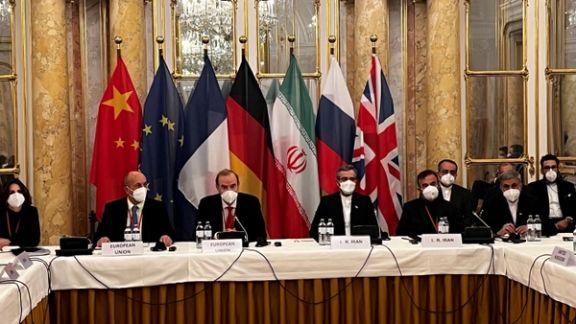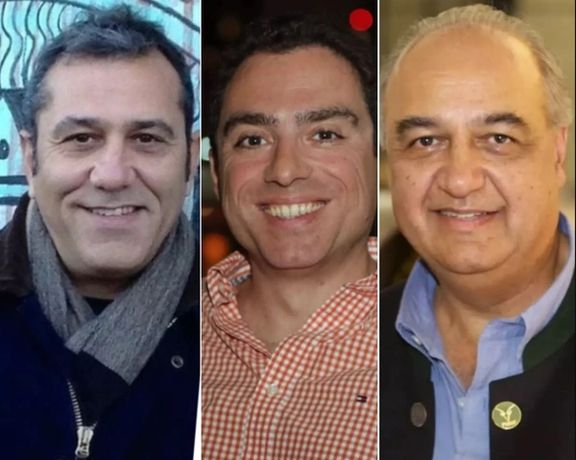Exclusive - US And Iran Can Reach A Deal 'Soon' On Release Of Frozen Funds

Talks between Iran and the US on the release of Tehran's frozen assets could result in a deal soon, a source with direct knowledge of the talks told Iran International.

Talks between Iran and the US on the release of Tehran's frozen assets could result in a deal soon, a source with direct knowledge of the talks told Iran International.
Apparently, the talks that have made progress focused on Iranian funds held in Iraq and South Korea. The money in Iraqi banks could be as much as $10 billion or more by most recent estimates mentioned by Iranian officials. Iraq imports natural gas and electricity from Iran but is barred by US sanctions to make dollar transfers to Tehran.
South Korea holds $7 billion, which it owes for importing Iranian oil prior to full US sanctions imposed in May 2019.
The implementation of the deal, however, will take time, the source told Iran International.
Iran is expected to show more flexibility on issues related to its nuclear program in exchange for the release of its funds in Iraq, and free hostages with dual nationality in exchange for its assets in South Korea. Currently there are three dual nationals with American citizenship and two individuals with US permanent residency held by Iran on trumped-up charges of espionage.
The three citizens are Siamak Namazi, Emad Sharghi and Morad Tahbaz, while Jamshid Sharmahd and Shahab Dalili are US permanent residents.

Iran International asked specific questions from the US State Department regarding the information obtained from our source. The press office relayed the following general response:
"We remain committed to securing the freedom of all US nationals who continue to be wrongfully detained overseas, and we are working relentlessly to bring them home, including Siamak Namazi, Emad Shargi, and Morad Tahbaz. We will not stop until they are reunited with their loved ones, but we have nothing to announce.
We do not discus diplomatic efforts, and would caution any reporting that purports to do so, which is often false and misleading."
Whether this can be interpreted as a clear denial or a careful response trying to thread on the edges, is up to debate.
Iran International had received unconfirmed information earlier this year that a deal had been worked out by the State Department to secure the release of the American prisoners in exchange for the $7 billion held by Seoul, but that the White House had not given its green light.
It is not clear if release of hostages pertains only to US nationals or also to other Western prisoners held by Iran. On Friday, however, Iran and Belgium exchanged two prisoners - an Iranian diplomat and intelligence agent Asadollah Assadi held in Belgium on a terrorism conviction and a Belgian aid worker Olivier Vandecasteele.
Axios had reported in early April that the Biden administration had been entertaining the idea of a “partial nuclear deal” with Iran and had discussed it with allies. Axios referred to ten Israeli and Western sources in establishing the information.
In exchange for freezing Iran’s uranium enrichment at 60 percent the US would ease some sanctions. If true, Iran would have gained the advantage of being a few months away from producing 90-percent enriched uranium needed for a nuclear weapon and enjoy the benefits of sanctions relief.

The report said Israeli officials told the Biden team that Iran would be treading on dangerous ground that could lead to an Israeli military strike if it enriches above the 60-percent level.
Iranian pundits, allowed to speak by the regime, and government-controlled media have also been discussing the possibility of a partial deal in recent months.
However, the US State Department at the time dismissed reports about considering a partial agreement.
Deputy Spokesperson Vedant Patel in response to a question by Iran International said that the talk of an interim nuclear deal was “rumors” that “tend to seldom be accurate.”
He added that President Joe Biden “has long said that he's committed to ensuring Iran never get to nuclear weapon, and we still believe diplomacy is the best way to achieve that goal. At the same time, we're preparing for all possible options and contingencies in coordination with our allies and partners.”
This was basically the same response given to Axios before it published its report, which did not categorically deny the information but tried to categorize it as a rumor that could be inaccurate.
Iran has accumulated enough uranium enriched to 20 and 60 percent purity that it could produce at least two nuclear bombs within months, most Western and Israeli officials and experts agree.
The Biden administration announced last October that pursuing talks for reviving the 2015 JCPOA nuclear deal abandoned by the Trump administration was not its priority anymore. Iranian delivery of drones to Russia and its deadly crackdown on anti-government protesters in the second half of 2022 were reasons to discourage the administration that had already spent 18 months in indirect talks with Iran.